 Passover’s Message of Hope in the Aftermath of Oct. 7
Passover’s Message of Hope in the Aftermath of Oct. 7
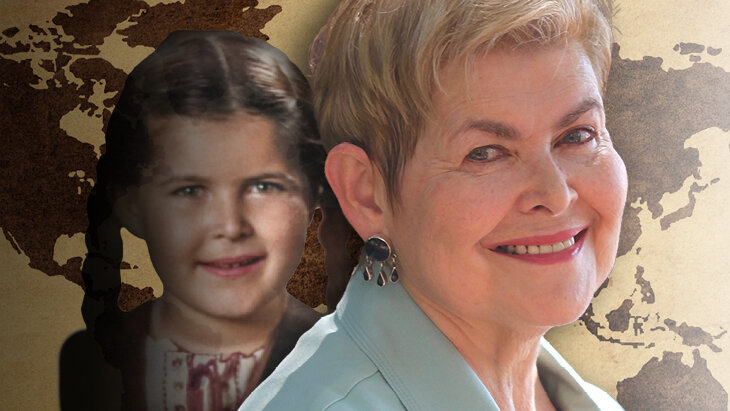

9 min read
Annette Liebeskind Berkovitz teaches us how to fight antisemitism today.
Annette and Daniel Liebeskind grew up experiencing many of the horrors, trials, challenges and triumphs of Jewish history in the decades following World War II. Born to traumatized Holocaust survivors, Annette and Daniel lived in war-town Poland, where antisemitism was still rife, then moved to 1950s Israel, where the very existence of the Jewish state was threatened.
Daniel grew up to become an acclaimed architect, known for his landmark Jewish Museum in Berlin and for creating the master plan of rebuilding Ground Zero in Manhattan. His sister Annette recently penned a memoir, Aftermath: Coming of Age on Three Continents, about her and Daniel’s traumatic childhoods.
In an Aish.com exclusive interview, Annette explained what motivated her to tell their story, and how Jews can respond to rising antisemitism today.
“My father and mother were both gulag survivors,” Annette explains. Her father, Nachman, grew up in the Polish city of Lodz, while her mother Dora hailed from a Ger Chassidic family Warsaw. In September 1939, both of their worlds - and those of every Jew in Europe - shattered. On the dawn of September 1, 1939, Nazi Germany launched an unprovoked attack on Poland: sixty divisions and nearly one and a half million Nazi soldiers invaded Poland, which scrambled to respond with its woefully inadequate armed forces.
Britain and France declared war on Germany two days later and came to Poland’s aid, but Poland suffered a fresh attack after two weeks of fighting when the USSR invaded Poland’s eastern border on September 17. After 11 days of intense battles, Poland surrendered to Germany on September 28; the following day the Soviet Union and Germany partitioned Poland, with the Bug River as the border.
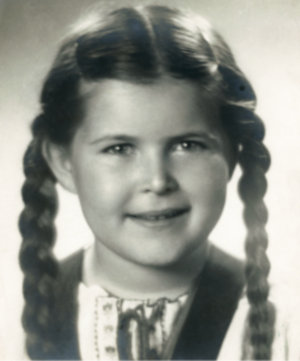 Anetka age 6, Poland 1949
Anetka age 6, Poland 1949
Despite the danger and overt anti-Jewish hatred of the new Nazi overlords, Annette’s father recalled that many Jews in Nazi-occupied zones were hesitant to leave. “Who wants to leave their home?” was a widespread sentiment; “what would they do with the furniture?” The thought of fleeing seemed overwhelming.
“My father felt it wasn’t safe to stay,” Annette explains. “He thought the Germans would be different (this time) than they were in the First World War.” Independently, each of Annette’s parents fled their homes, crossing the Bug River into Soviet-occupied territory. “Escape at the time was considered madness,” she explains: “50,000 people were killed crossing the river; it was a scene of fighting.” Somehow, each of her parents made it across.
Once in Soviet-held territory, her parents were safe from deportation to Nazi death camps, but life continued to be perilous. Annette’s father was “told by the Russian police to come and register: they said ‘we can offer you Russian citizenship or you can remain Polish citizens’. Most chose to remain Polish.The Soviet authorities said that’s okay, you can go home, but later they went to their homes with dogs and guns and arrested those who chose Polish citizenship and sent them to gulags….”
Both of Annette’s parents were deported, her father to a gulag north of Moscow and her mother to a gulag in Siberia.
In 1941, facing catastrophic losses on the battlefield, Josef Stalin began releasing gulag prisoners to fight with Soviet forces. In all, nearly one million gulag prisoners from the USSR’s brutal prison system were released, with the understanding that most of them would fill the depleted ranks of the Red Army.
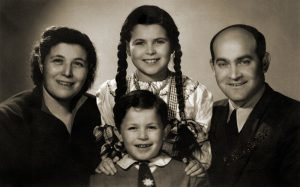 Annette with her family
Annette with her family
Annette’s parents Nachman and Dora were amongst those who were released. However, instead of fighting, they fled south, eventually finding refuge in the Soviet satellite state of Kyrgyzstan. There, they gave birth to Annette and her younger brother Daniel. It was a life of privation, with little food and only the meanest shelter.
After the war, Annette, her brother, and parents returned to Poland. Some of her earliest memories are of their pervasive fear of antisemitism in Lodz and the reluctance of her parents to be outside of their tiny apartment late at night lest they be attacked. Annette’s elementary school teacher was openly antisemitic, and the few Jews who’d returned kept their Jewish rituals and traditions hidden. She and her parents spoke Yiddish when they were alone at home, but always conversed in Polish when anyone else could hear.
“Ensconced in our small, but cozy apartment, protected from the courtyard bullies in Lodz, Poland, and doted over by our nanny, I felt happy. As I grew into school age, I did notice that unlike most of my classmates we had no family around us: no grandmothers, or grandfathers, no aunts, no uncles. It was then that I began asking questions. And the answers, though puzzling, didn’t truly register the scope of the family tragedy, the enormous losses, the depth of my parents’ pain.”
When Annette was seven years old and her brother Daniel was five, her family started “spending manyweekends going to the cemetery where we cleaned up graves of my paternal grandparents: my father used to say they were so lucky to die before the Holocaust.” Her father would also take them to pause by the old wall that used to surround the Lodz Ghetto and remember the many friends and family members who perished there.
When she was 13, Annette’s family relocated once again, moving to Israel where two of her mother’s siblings, who’d miraculously survived the Holocaust, lived. “It wasn’t just simple moving from place to place,” Annette recalls; “It was running away…” Gaining visas to depart Communist Poland wasn’t easy, and even once her parents had obtained their precious visas to move to Israel, they realized that they could be revoked at any moment. “I’ll never forget: a huge crate appeared in our apartment, practically the size of our living room, and my parents haphazardly threw in whatever they wanted to take.” Once they received visas to leave, there wasn’t a moment to lose.
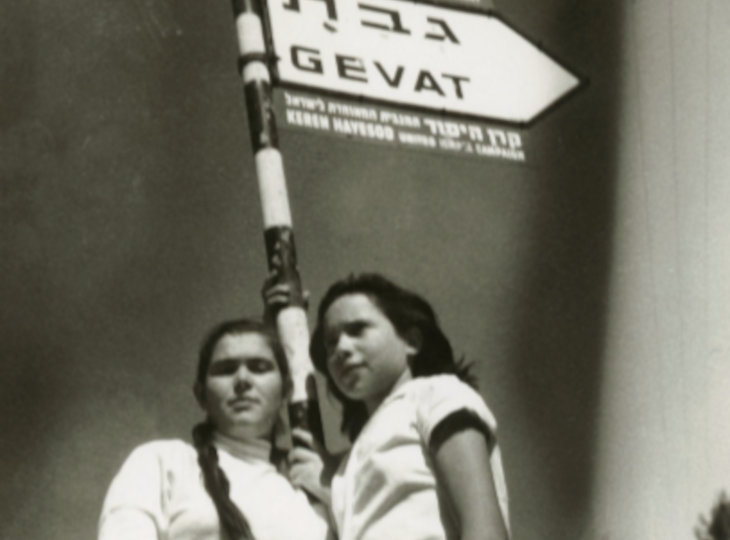 Anat and Ruthi saying goodbye at the bus stop next to a sign for Kibbutz Gevat
Anat and Ruthi saying goodbye at the bus stop next to a sign for Kibbutz Gevat
Within days, Annette was thrust into a new life. She and her brother were left with an aunt in Kibbutz Gvat, a bright, sunny collective farm in northern Israel. “We were like creatures from Mars,” Annette recalls. “We were in warm Polish clothing, my hair was in long braids…we didn’t speak the language.”
Annette and her brother eventually embraced kibbutz life. Annette became Anat and she grew to love the fresh food and warm sunshine in her new life. Yet more disruptions followed: Annette’s family moved them once again, to city life in Tel Aviv. Then when Annette was 16 years old, her father left for America, telling the family that he would send for them when he could. After eight months, Annette moved once again, becoming an American girl in New York City. “I was like a plant yanked out by the roots,” she recalls.
“I think it’s taught me to be resilient,” Annette explains. “People tell me I'm strong. If that’s true it’s because I had to go through so many difficult times in my life as a child and as an adult.”
With the frightening resurgence of antisemitism around the world - and with unprecedented levels of immigration today - Annette knew that it was crucial to write about her experiences. She also wants to help others learn from her experiences of feeling connected to her Judaism and her efforts to pass along her Jewish heritage.
After working for three decades with the Wildlife Conservation Society in New York, Annette knew it was time to tell her story. “My husband kept saying you have to retire because you’ve always wanted time to write.”
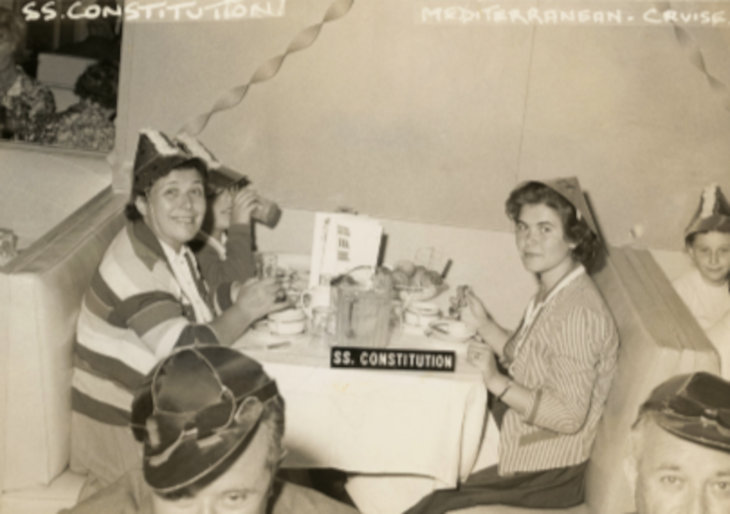 Foreground: Annette and her mother Dora aboard the SS Constitution; Daniel on his mother’s left
Foreground: Annette and her mother Dora aboard the SS Constitution; Daniel on his mother’s left
“My father always felt it was an obligation to tell his story.” Annette feels she’s carrying that torch. She wants the world to remember relatives like her cousin Isser who was an artistic 15 year old in Poland when war broke out. Annette’s father tried to bring him to the Soviet Union with him, but Isser’s father refused to let him go. He perished in the Holocaust. “I feel like I know him even though he died before I was born”, Annette explains; “I remember him - my book is one way to keep his memory alive.”
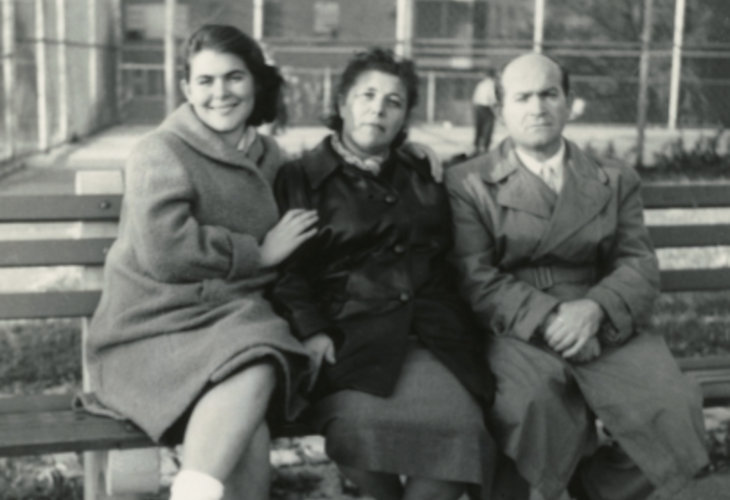 Annette (age 16) and her parents on a bench near the Jerome Resevoir in The Bronx, 1959
Annette (age 16) and her parents on a bench near the Jerome Resevoir in The Bronx, 1959
One theme that runs through Annette’s book is her complex relationship with Jewish tradition. Her mother’s family is religiously observant while Annette’s parents were rigidly secular. Now, she explains that one of her chassidic cousins who lives in Israel always stops by Annette’s home whenever he visits New York. “Whenever he comes to my apartment visits me has a gleisel of schnapps(glass of liqueur).” It’s important for Annette to show that all different types of Jews are ultimately one family.
Another crucial value that Annette wants to convey is the centrality of Israel in Jewish life. When she was 16 and was suddenly forced to move from Israel to New York, Annette embraced life as an American. In her book, she describes feeling that her connection to Israel was weakening. “Now my heart is tied to Israel more than any other place,” she explains. Annette is intensely Zionist and wants other Jews to realize that Israel is a homeland for all Jews. “Even my father,” she explains, “a more secular Jew you never could meet felt intensely connected to Israel.” When Annette asked him to name a special place to celebrate his 90th birthday, to her surprise he said Israel. It was an emotional birthday visit, and reminded Annette how central Israel is to her Jewish life.
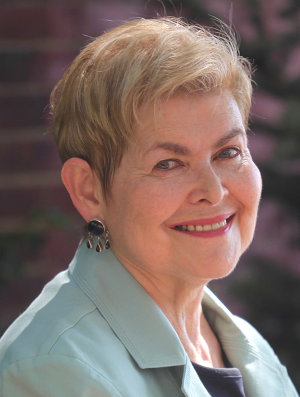
“It’s important for readers to know their roots,” Annette explains. Her daughter has researched their family history all the way back to Spain and Portugal in the 14th and 15th centuries. “You need to know the history. Even in families - or maybe especially in families of mixed marriages - I’m Jewish and there are fewer of us than there are of other kinds of people. I think it’s very important, regardless of religious tradition - people should know their Jewish roots.”
Aftermath: Coming of Age on Three Continents. A Memoir by Annette Liebeskind Berkovitz (Amsterdam Publishers: 2022).
